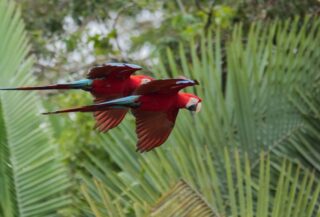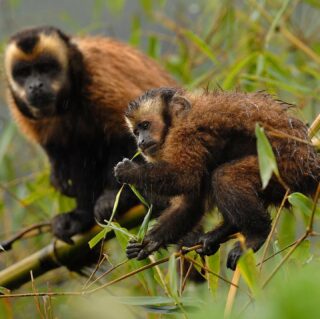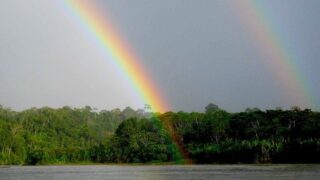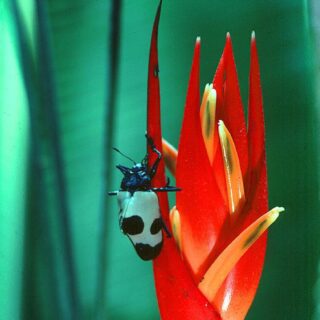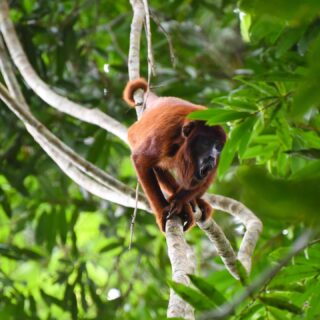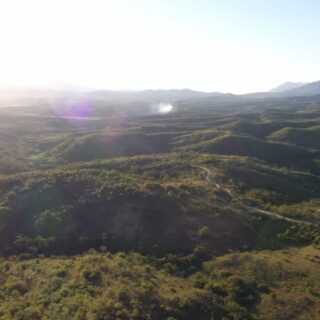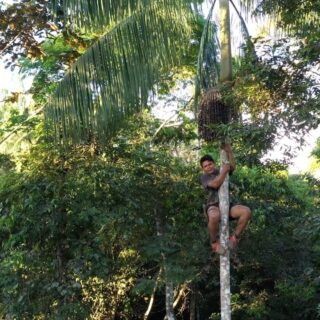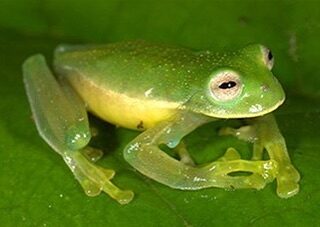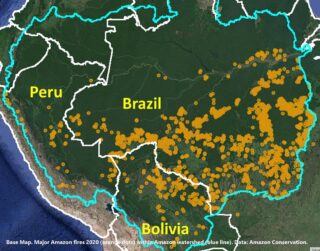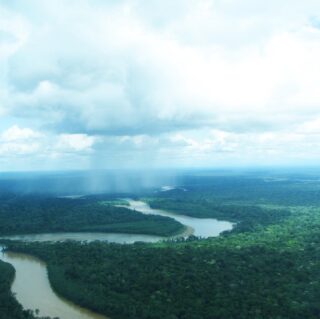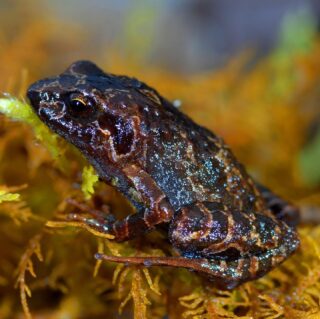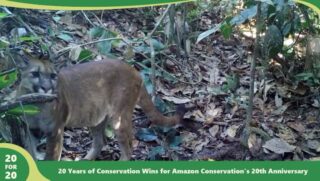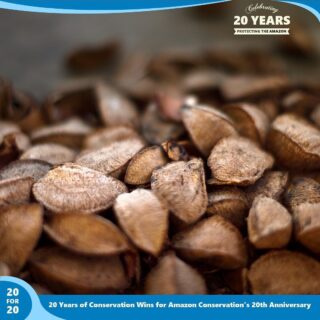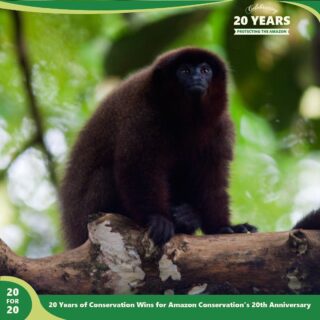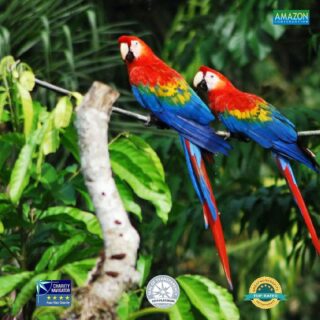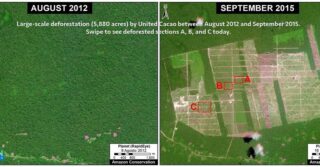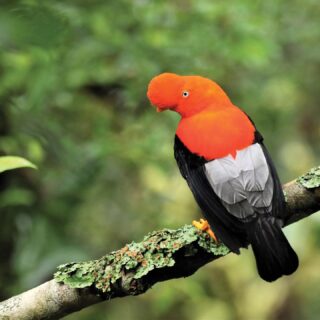It’s International Day for Biodiversity! Learn About the Many Roles of Wildlife That Keep Our Planet Healthy
May 22, 2023
Happy International Day for Biodiversity! In celebration of this day, we want to give special thanks to the many individuals and partners who have supported us in our conservation initiatives that contribute to our mission: to unite science, innovation, and people to protect biodiversity in the Amazon.
We also want to share our appreciation for all the parts of our ecosystems that keep our forests strong, rivers running, and climate regulated. Our passion for protecting biodiversity extends beyond admiring the beauty of the Amazon. No matter how big or small, every living being in the Amazon plays an important role in regulating this ecosystem – improving air and water quality, adapting to the warming climate, and sustaining all forms of life through mutualistic relationships.
Pollinators
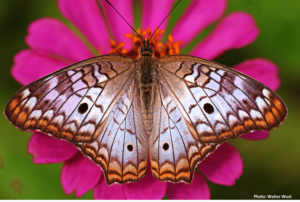
We have come to know and love the role of bees in our environment, and how they are an important part of pollination for many plants and for supporting biodiversity. However, bees are not the only pollinators we rely on. Other winged insects prevalent throughout the Amazon such as butterflies, moths, and beetles can distribute pollen from one flower to the other. Even animals such as hummingbirds and bats are also contributors to pollination, keeping the process of reproduction flowing and promoting genetic diversity.
Indicator Species
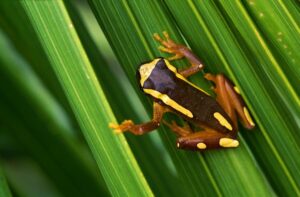 Certain species in the rainforest are highly susceptible to their environment. Their well-being can easily be impacted by small changes in the ecosystem. Changes in their behavior, diet, absence, or presence are vital indicators for water, air, forest, and overall environmental quality in a particular area. From large mammals like the jaguar to insects like the dung beetle or plants like orchids, indicator species can come from all walks of life and help researchers track ecological changes to find ways in restoring the balance of forest ecosystems.
Certain species in the rainforest are highly susceptible to their environment. Their well-being can easily be impacted by small changes in the ecosystem. Changes in their behavior, diet, absence, or presence are vital indicators for water, air, forest, and overall environmental quality in a particular area. From large mammals like the jaguar to insects like the dung beetle or plants like orchids, indicator species can come from all walks of life and help researchers track ecological changes to find ways in restoring the balance of forest ecosystems.
Seed Dispersers
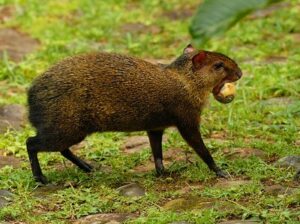 Animals like the agouti often play the role of the ‘gardeners’ in the forest. They help with transporting nuts and seeds from one place to another. More often than not, these animals will forget where they buried their goodies, and within weeks, a new plant is born. Brazil nuts, most commonly distributed by the agouti, rely heavily on their seed dispersal for reproduction. Other animals like the Andean bear spread nutrients from fish and seeds through their waste across a wide range of areas.
Animals like the agouti often play the role of the ‘gardeners’ in the forest. They help with transporting nuts and seeds from one place to another. More often than not, these animals will forget where they buried their goodies, and within weeks, a new plant is born. Brazil nuts, most commonly distributed by the agouti, rely heavily on their seed dispersal for reproduction. Other animals like the Andean bear spread nutrients from fish and seeds through their waste across a wide range of areas.
Climate Regulators
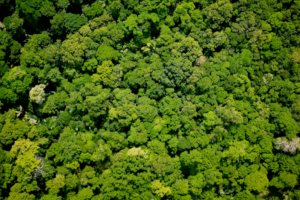 The Amazon is the world’s largest carbon sink, absorbing 2 billion tons of carbon dioxide each year, representing 5% of global emissions per year. This helps regulate climate change, reduce greenhouse gasses, and purify the air by absorbing pollutants such as nitrogen and sulfur dioxides. The Amazon’s forests also sequester, or store, more than 150 billion metric tons of carbon, which is more than one-third of all the carbon stored in tropical forests worldwide. In turn, these forests account for about 20% of the world’s oxygen, allowing us to maintain good air quality for human and animal respiration.
The Amazon is the world’s largest carbon sink, absorbing 2 billion tons of carbon dioxide each year, representing 5% of global emissions per year. This helps regulate climate change, reduce greenhouse gasses, and purify the air by absorbing pollutants such as nitrogen and sulfur dioxides. The Amazon’s forests also sequester, or store, more than 150 billion metric tons of carbon, which is more than one-third of all the carbon stored in tropical forests worldwide. In turn, these forests account for about 20% of the world’s oxygen, allowing us to maintain good air quality for human and animal respiration.
In order to keep this carbon in the ground and out of the atmosphere and keep regulating the world’s emissions, it’s important we keep these forests standing and these ecosystems healthy and thriving.
So on this International Day for Biodiversity, say thank you to all the wild creatures who help make our world a better place. Their hard work surely goes a long way!

